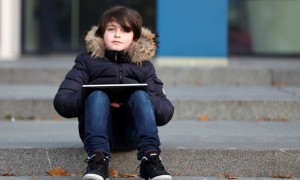MEXICO CITY, July 31-- Children living in impoverished areas are the most vulnerable group in Mexico due to a lack of education during the COVID-19 pandemic, said one expert.
Most households suffered a drop in income or unemployment of at least one family member, impacting the decision to continue their children's education, Maria Teresa Reyes Ruiz, a researcher at the National Autonomous University of Mexico, told Xinhua. She called for policy support to guarantee access to education for underprivileged children.
According to the National Council for the evaluation of Social Development Policy, the educational gap in the Latin American nation reached 19.2 percent between 2018 and 2020.
"The states with the greatest educational gap, interestingly, are the ones that also register the highest levels of poverty, as is the case of Chiapas, Oaxaca, and Michoacan," Reyes pointed out, adding that some students had to work instead of continuing their education.
She warned that students who fail to complete their studies have a lower chance of earning a decent income and maintaining a high standard of living as adults.
"Lack of access to education will cause inequalities when looking for a stable and well-paid job," she said.
"It is extremely important to have an economic resource that guarantees material conditions of life, of existence, for comprehensive development; otherwise, the chances of having a decent life diminish considerably," she said.
In Mexico, as in most other countries, face-to-face classes were canceled for nearly two years to contain the spread of the novel coronavirus. The state-run television program "Learn at home" was established, and classes were held online, demanding students to keep up with their subjects with an internet connection -- something children in impoverished areas lacked.
"If children do not have access to education, later they will have to resort to informal work, to low-skilled jobs and, therefore, they will have different deficiencies," she added.
The expert recommended enacting policies at the national level to ensure that children in disadvantaged situations have easy access to education.
"We would have to implement effective strategies to bring students into the classroom, improve the infrastructure to deal with any disease, and create the necessary conditions so that families feel safe sending their children to school," she said.







